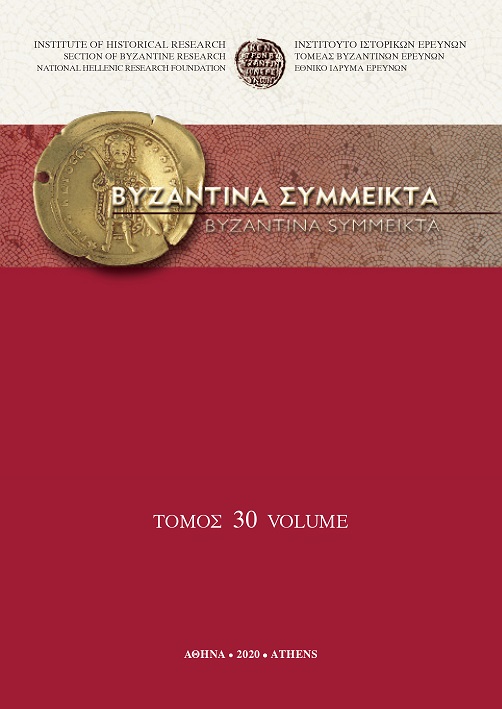The Study of Ancient Greek Texts in Early Ottoman Constantinople

Abstract
H εργασία αποτελεί επισκόπηση των έργων σχετικά με τα αρχαία ελληνικά κείμενα στην Κωνσταντινούπολη κατά το δεύτερο μισό του 15ου αιώνα. Μαρτυρίες από τα σωζόμενα χειρόγραφα που περιέχουν αρχαία ελληνικά κείμενα, τα συγγράμματα των Ελλήνων διανοουμένων της εποχής όπως ο Αμιρούτζης, ο Γεώργιος Τραπεζούντιος, ο Ματθαίος Καμαριώτης, καθώς και πληροφορίες που παρέχονται από τον σύγχρονό τους Κριτόβουλο, αποδεικνύουν ότι οι λόγιοι της εποχής και οι μαθητές τους ενδιαφέρονταν για ευρύ φάσμα θεμάτων, από την αρχαία ελληνική γλώσσα και τη λογοτεχνία μέχρι τις επιστήμες και τη φιλοσοφία. Η μελέτη των αρχαίων ελληνικών κειμένων δεν περιοριζόταν στην Αυλή των Οθωμανών Σουλτάνων, αλλά και στους εκπαιδευτικούς κύκλους των Ελλήνων διανοουμένων.
Article Details
- How to Cite
-
KUKJALKO, B. (2020). The Study of Ancient Greek Texts in Early Ottoman Constantinople. Byzantina Symmeikta, 30, 283–306. https://doi.org/10.12681/byzsym.15713
- Issue
- BYZANTINA SYMMEIKTA 30
- Section
- Articles

This work is licensed under a Creative Commons Attribution-NonCommercial-ShareAlike 4.0 International License.
Copyright: The copyright for articles in this journal is retained by the author(s), with first publication rights granted to the journal. By virtue of their appearance in this open access journal, articles are free to use (with the exception of the non-granted right to make derivative works) with proper attribution for non-commercial uses (licence Creative Commons 4.0). NHRF retains the worldwide right to reproduce, display, distribute, and use articles published in BYZANTINA SYMMEIKTA in all formats and media, either separately or as part of collective works for the full term of copyright. This includes but is not limited to the right to publish articles in an issue of the Journal, copy and distribute individual reprints of the articles, authorize reproduction of articles in their entirety in another NHRF publication, and authorize reproduction and distribution of articles or abstracts thereof by means of computerized retrieval systems.


